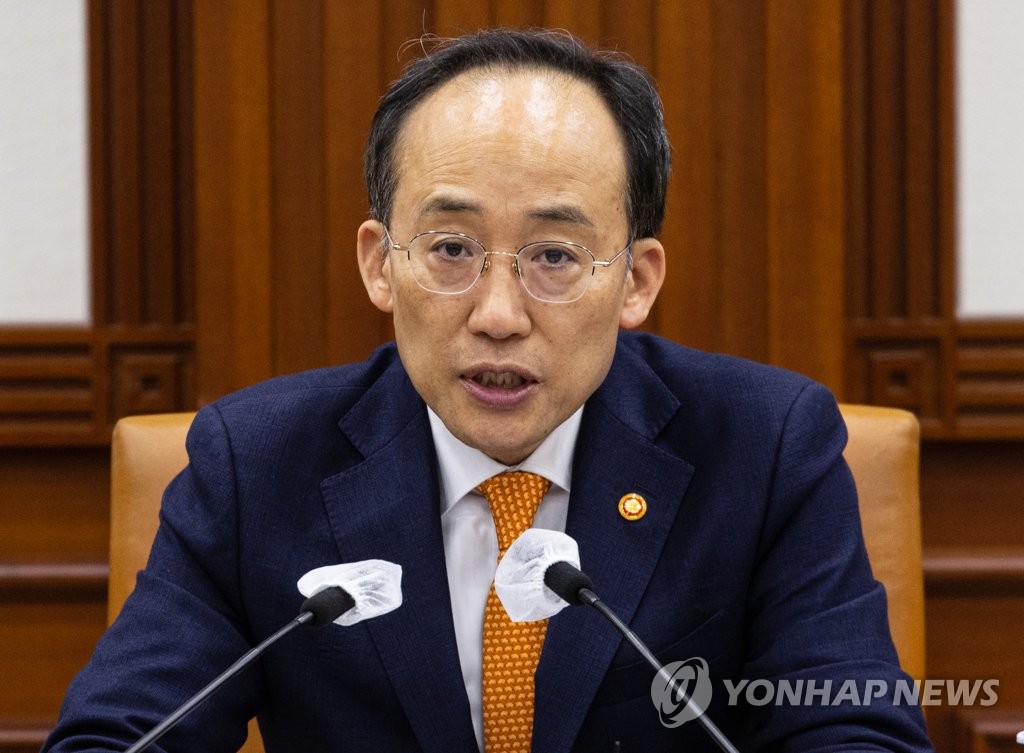S. Korea eyes 13 tln-won investment projects with private sector to boost growth

SEOUL, April 6 (Yonhap) -- South Korea plans to carve out investment projects worth 13 trillion won (US$9.8 billion) under ties with the private sector, the finance ministry said Thursday, amid growing concerns over an economic slowdown.
The move came as Asia's No. 4 economy is anticipated to remain in a slump in the first half of 2023, before gradually rebounding later in the year.
"The latest measures focus on bolstering the fiscal capacity while addressing downside risks in the economy," Finance Minister Choo Kyung-ho said ahead of a closed-door meeting on export issues.
"We will proactively revamp related policies to induce more people in the private sector to participate (in such projects)," Choo added.
The ministry said it will speed up the implementation of existing projects as well, with a goal of executing 8.9 trillion won worth of investment projects within this year.
To revitalize the country's chip industry, as well as display and battery sectors, the government and companies will speed up moves to create a research and development (R&D) fund of around 160 trillion won by 2027, including 156 trillion won from the private sector.
"While exports of cars and rechargeable batteries remain strong, the chip sector is yet to experience the impact of the reopening of the Chinese economy," Choo said.
Exports of semiconductors came to $8.6 billion in March, down $4.5 billion from a year earlier, due to the downturn of the world's chip market over an economic slowdown.
South Korea, meanwhile, will also increase its support for the shipbuilders' refund guarantees (RG).
An RG is a form of security for ship purchasers, who usually make advance payments on an order. If the ordered vessel cannot be delivered, a bank that has taken on the guarantee of the shipbuilder would make the refund.
South Korea's economy is estimated to have grown 2.6 percent on-year in 2022, slowing from a 4.1 percent gain the previous year. The Bank of Korea expects the country's economic growth to further slow this year to 1.6 percent due to global monetary tightening.
The country's exports fell for the sixth consecutive month in March due mainly to weak global demand for semiconductors amid an economic slowdown.
Exports have logged an on-year fall since October last year amid aggressive monetary tightening by major economies to curb inflation. It is also the first time since 2020 that exports have declined for six months in a row.
The finance ministry earlier forecast exports will mark a 4.5 percent on-year decline in 2023.
colin@yna.co.kr
(END)





